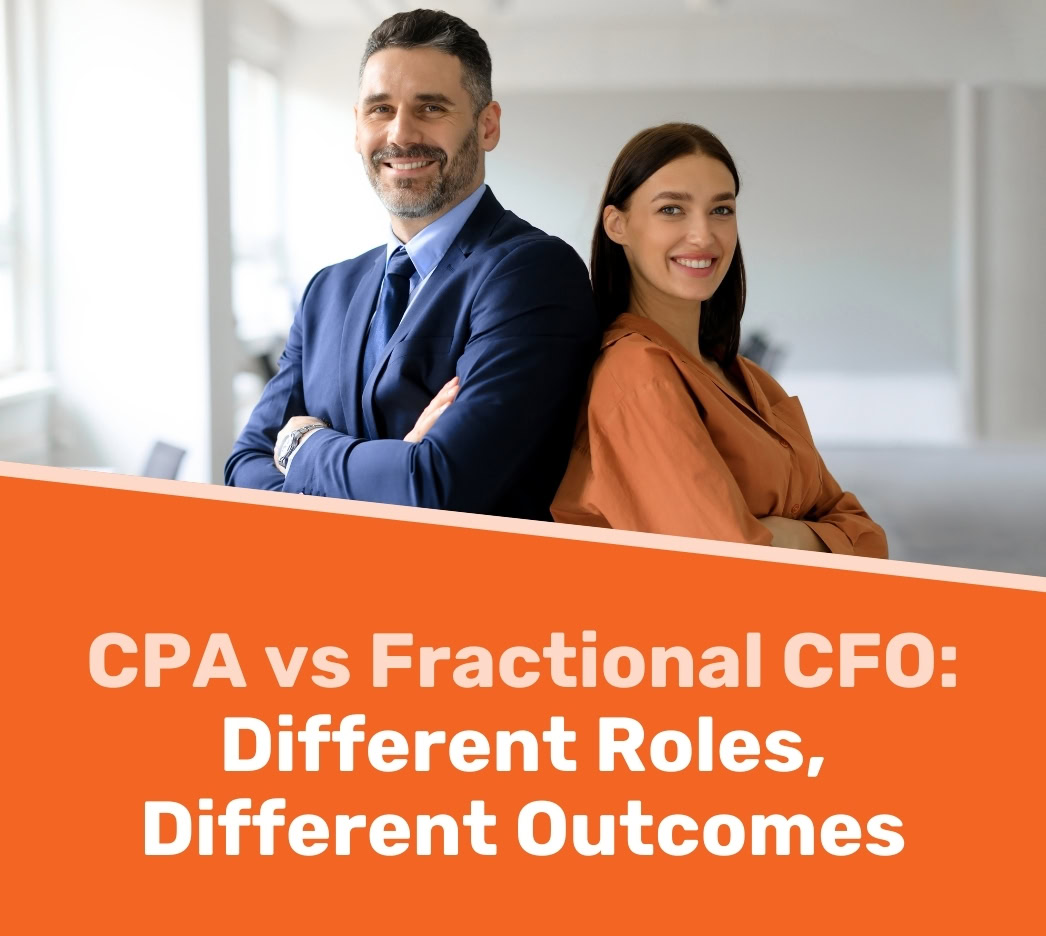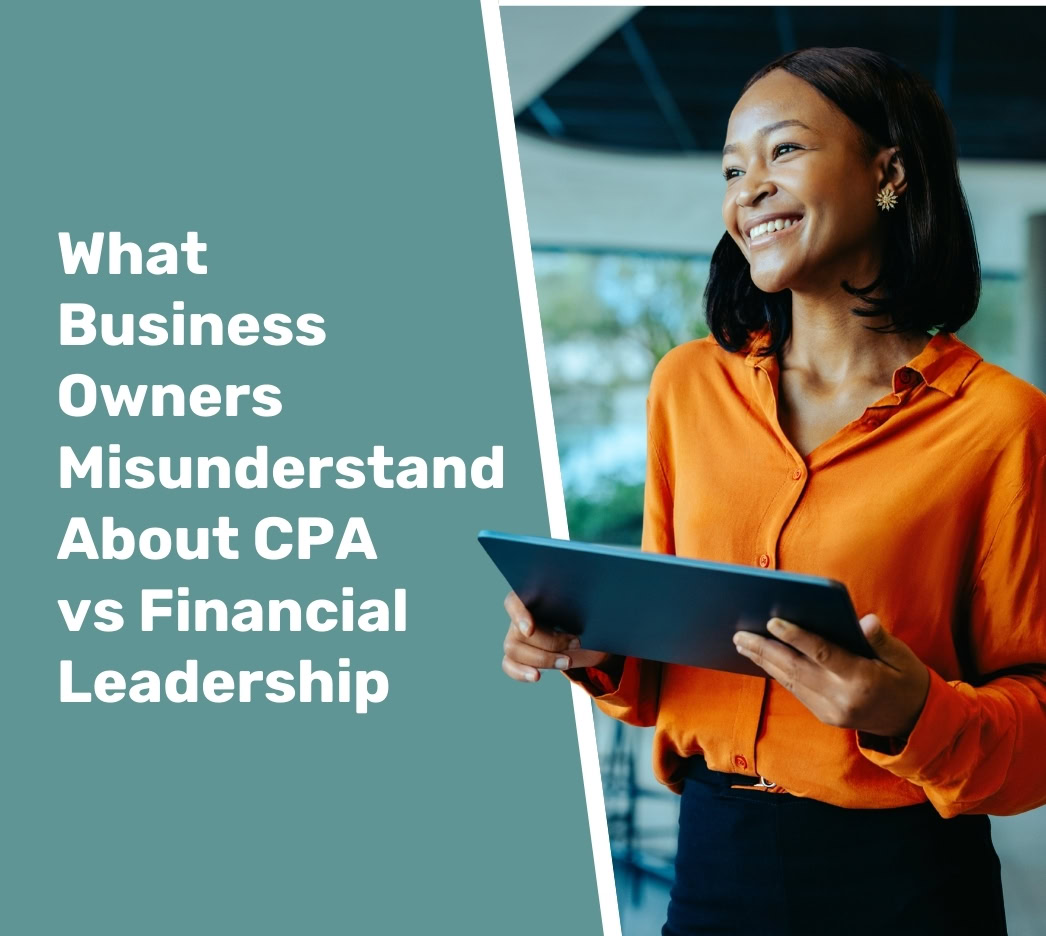By: Gabrielle Luoma CPA, CGMA
By: Gabrielle Luoma CPA, CGMA
Major financial transactions can be defining moments in a company’s journey. Whether you are preparing to sell your business, raise capital, acquire another company, or secure a substantial loan, the stakes are high. These events bring opportunity, complexity, and risk. Therefore, financial preparation is critical.
For businesses in the $5 million to $20 million revenue range, these transactions often represent new territory. You may not have a full-time CFO, but you still need the expertise and leadership to make sure the process is smooth, credible, and strategically sound.
This is where a Fractional CFO becomes your most valuable partner.
A fractional CFO brings senior financial oversight, well-tested processes, and the kind of experience that ensures your business is prepared to make the best possible impression when the time comes.
Why Financial Preparation Matters More Than You Think
A major transaction affects your operations, your valuation, your team, and your future. You often get one shot to present your business to investors, buyers, or lenders. Once due diligence begins, everything you have said or claimed will be tested.
Buyers and financial partners expect clarity. They want financials that are accurate, well-documented, and supported by thoughtful projections. If your numbers are messy or inconsistent, it can delay the deal, lower your valuation, or cause the opportunity to fall apart altogether.
Getting ready for a transaction is not something you start when a letter of intent is on your desk. The work starts months ahead of time.
How a Fractional CFO Prepares You
Fractional CFOs bring the right blend of financial strategy and operational execution. Their work falls into three major categories when preparing for a transaction: organizing financials, building forward-looking models, and supporting the deal process with clarity and confidence.
Clean, Credible, and Organized Financials
Before any transaction moves forward, your historical financials will be closely examined. A fractional CFO will:
- Review prior years for consistency and accuracy
- Clean up errors or misclassifications in your general ledger
- Ensure reconciliations are complete and well-documented
- Standardize your monthly financial packages for outside review
Buyers and lenders want to see dependable financial records. Sloppy or incomplete reporting will raise concerns. A fractional CFO makes sure your numbers reflect your business accurately and professionally.
Projections and Forecasts That Support Your Strategy
A solid historical record is important, but future-facing insights matter just as much. Your CFO will help develop projections that include:
- Three to five year financial models
- Assumptions that align with your market and growth plan
- Sensitivity analysis to account for risk and different outcomes
These models demonstrate that you understand your business and are thinking ahead. They also support your valuation by showing a clear path to future performance.
Confident Guidance Through Due Diligence
Due diligence is where many deals get delayed or derailed. Questions come quickly and require detailed answers. A fractional CFO helps by:
- Organizing data rooms with complete financial documents
- Preparing responses to financial, tax, and operational inquiries
- Identifying potential risks in advance so you can mitigate them
- Supporting presentations or meetings with buyers and advisors
This support reduces stress and keeps the process moving. When your CFO is engaged and well-prepared, it sends a strong message to potential partners that your business is ready for the next step.
Why It Pays to Start Early
Getting your business transaction-ready takes time. If you wait until a deal is in progress, you may end up rushing, missing key details, or making avoidable mistakes. Starting early gives you time to identify gaps, strengthen your systems, and align your team.
Even if you are not sure a transaction will happen soon, having a fractional CFO review your financial operations now puts you in a stronger position for the future.
Your Next Step
Whether you are selling your business, raising capital, acquiring a competitor, or securing financing, the path to a successful transaction begins with financial preparation. A fractional CFO gives you the financial leadership and structure you need to present your company with confidence.
These events are too important to leave to chance. The right financial preparation can increase your valuation, shorten the timeline, and reduce the emotional toll on you and your team.
You only get one chance to make a strong first impression. Make sure your numbers are ready to speak for you.
If you’re ready to start making smarter, more confident financial decisions for your business, reach out to the MOD VENTURES LLC team today for a consultation. The right support and resources (such as a fractional CFO or Financial Controller) can turn data into your business’s most valuable asset.
You May Also Love
CLOSE






